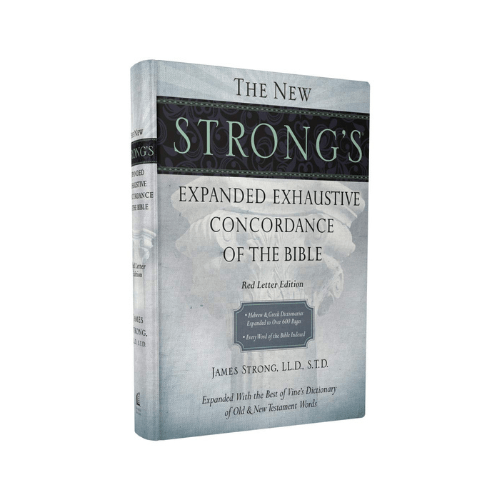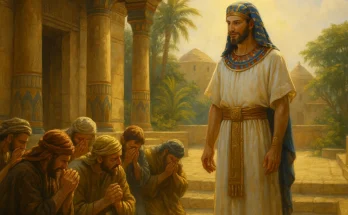Have you ever wondered why the Book of Psalms continues to inspire and comfort believers after thousands of years? This remarkable collection of songs, prayers, and poetry captures the full range of human emotions while pointing us toward God’s wisdom, faithfulness, and divine protection.
From the highest moments of joy to the deepest valleys of sorrow, the Book of Psalms teaches us how to worship, seek refuge in God, and trust His guidance. These ancient words remind us that we are never alone—God hears our cries, knows our struggles, and surrounds us with His steadfast love.
Throughout history, people have turned to the Book of Psalms for strength and encouragement. Whether David fleeing from his enemies, the Israelites longing for restoration, or modern believers seeking peace, these sacred writings remain a source of hope. Moreover, they provide wisdom for daily living, shaping our faith and drawing us into a deeper relationship with God.
In this outline, we will explore the authorship, themes, historical background, and theological contributions of the Book of Psalms. Together, we will uncover its timeless truths and discover how its message continues to impact our lives today. Let’s journey through this incredible book and allow its words to refresh our souls!
Writer of the Book of Psalms
The Book of Psalms is unique because it has multiple authors, each bringing a different perspective on faith, worship, and life’s challenges. King David, known as a man after God’s own heart, wrote nearly half of the Psalms. His writings reflect his personal experiences—his victories, struggles, prayers, and deep trust in God. Whether rejoicing in triumph or crying out in distress, David’s words remind us to seek God in every season.
However, David was not the only writer. Asaph, a Levitical musician, contributed several Psalms focused on worship and God’s justice. The sons of Korah, another group of temple musicians, wrote Psalms emphasizing devotion and the majesty of God. Even Moses, the great leader of Israel, penned Psalm 90, reflecting on God’s eternal nature. Additionally, Solomon, known for his wisdom, contributed Psalms that highlight God’s righteousness.
Some Psalms remain anonymous, yet each one carries divine inspiration. Together, these authors created a collection that speaks to every aspect of human life. Because of this diverse authorship, the Book of Psalms resonates with all of us, no matter our circumstances. Through their words, we find encouragement, wisdom, and a call to trust in God.
Date Written
The Book of Psalms was written over a span of nearly 1,000 years, making it one of the most extensive collections in Scripture. The earliest Psalm, Psalm 90, was written by Moses around 1400 B.C. Later, during the reign of King David (1000 B.C.), many Psalms were composed as songs of worship and personal reflection.
Over time, other writers, including Asaph, the sons of Korah, and Solomon, added to the collection. Some Psalms were written during Israel’s exile in Babylon, expressing sorrow and longing for restoration. Others came after the exile, celebrating God’s faithfulness and the rebuilding of the temple.
The Book of Psalms was likely finalized during the time of Ezra in the 5th century B.C. As the Psalms developed, they became a foundational part of Jewish worship. Today, they continue to inspire and guide us in our faith journey.
To Whom Written
The Book of Psalms was originally written for the people of Israel, serving as their hymnbook for worship, prayer, and reflection. It was used in temple services, personal devotion, and community gatherings, helping believers express their faith through song and prayer.
However, the Psalms were not just for ancient Israel. They were also written for future generations, offering timeless wisdom about God’s justice, mercy, and faithfulness. Through poetic prayers and heartfelt praises, the Psalms teach us how to seek God in every season of life.
Today, the Book of Psalms continues to inspire believers around the world. Whether we are joyful, struggling, or searching for peace, the Psalms remind us that God is near. Because of their universal message, these sacred songs remain as relevant now as they were thousands of years ago, guiding us in worship and strengthening our faith.
The New Strong’s Expanded Concordance
The best concordance for word study! This exclusive new edition of a legendary classic puts generations of biblical research at your fingertips.
Purpose of the Book of Psalms
The Book of Psalms was written to lead us in worship and teach us how to express our faith in every situation. Whether we feel joyful, fearful, or overwhelmed, the Psalms give us words to cry out to God. They remind us that He hears our prayers, knows our struggles, and surrounds us with His love.
Many Psalms serve as prayers, guiding us in thanksgiving, repentance, and trust. Others function as hymns, calling us to praise God for His greatness and faithfulness. Some Psalms are meditations, helping us reflect on His wisdom and promises.
Additionally, the Book of Psalms provides powerful prophetic insights about the coming Messiah. Psalms like Psalm 22 and Psalm 110 foreshadow Jesus as our King, Savior, and Redeemer. Ultimately, the Psalms help us develop a deeper relationship with God, teaching us how to worship Him with sincerity, faith, and devotion.
Historical Context of the Book of Psalms
The Book of Psalms spans many centuries, reflecting key moments in Israel’s history. Each Psalm was written within a specific historical setting, shaping its message and purpose. Understanding these backgrounds helps us grasp the deeper meaning behind the words.
Many Psalms come from the time of King David, who wrote songs of victory, repentance, and trust in God. As Israel’s greatest king, David faced fierce battles, personal failures, and divine deliverance—all recorded in his Psalms. Later, during Solomon’s reign, Psalms focused on wisdom, worship, and the majesty of God’s temple.
However, not all Psalms were written in times of peace. Some emerged during Israel’s darkest hours, like the Babylonian exile. Psalms of lament capture the sorrow of God’s people as they longed for restoration. After the exile, Psalms of thanksgiving celebrated God’s faithfulness in bringing them home.
Throughout history, the Book of Psalms served as Israel’s prayer book, guiding worship and strengthening faith. Whether during times of triumph or tragedy, these sacred songs reminded God’s people of His sovereignty. Even today, the Psalms continue to provide comfort, encouragement, and a deep connection to God’s unchanging faithfulness.
Key Themes in the Book of Psalms
The Book of Psalms is filled with powerful themes that shape our faith and deepen our relationship with God. These themes remind us of His love, justice, and faithfulness in every season of life.
One of the most dominant themes is worship and praise. The Psalms call us to worship God with sincere hearts, recognizing His greatness, power, and faithfulness. Many Psalms, such as Psalm 100, encourage joyful praise, while others, like Psalm 150, emphasize worship through music and song.
Another central theme is trust and dependence on God. Life brings challenges, but the Psalms teach us to rely on God’s provision and guidance. Psalm 23 beautifully illustrates this trust, reminding us that God is our shepherd, leading and protecting us.
The Book of Psalms also highlights God’s sovereignty and justice. Psalms like Psalm 2 and Psalm 96 declare that He reigns over the earth and will judge righteously. Even when evil seems to prevail, the Psalms assure us that God’s justice will prevail.
A deeply personal theme is repentance and forgiveness. In Psalm 51, David expresses deep sorrow for his sin, pleading for God’s mercy and restoration. These Psalms remind us that no failure is beyond God’s grace.
Additionally, many Psalms include Messianic prophecies. Psalm 22 vividly describes Christ’s suffering, while Psalm 110 speaks of His eternal reign. These Psalms point to Jesus as the fulfillment of God’s redemptive plan.
Finally, the Book of Psalms reassures us of God’s protection and deliverance. Psalms like Psalm 91 and Psalm 46 declare that God is our refuge, offering peace and strength in times of trouble.
Through these themes, the Psalms continue to encourage, comfort, and guide us in our faith journey.
Major Events/Stories in the Book of Psalms
Although the Book of Psalms is primarily a collection of poetry, it references key biblical events that shaped Israel’s history. These Psalms connect us to God’s mighty acts and remind us of His faithfulness throughout generations.
Creation and God’s Majesty
Psalms like Psalm 8 and Psalm 19 reflect on God’s power displayed in creation. They remind us that the heavens declare His glory, and everything in nature points to His wisdom. These Psalms encourage us to worship the Creator who designed the universe with purpose and care.
David’s Life and Kingship
Many Psalms reflect David’s journey as a shepherd, warrior, and king. Psalm 3 shows his trust in God while fleeing from enemies. Psalm 18 celebrates his victories. Psalm 23 beautifully portrays God as a shepherd who leads and protects. In Psalm 51, David pleads for forgiveness, demonstrating God’s mercy toward a repentant heart.
Israel’s Deliverance
Psalms like Psalm 78, Psalm 105, and Psalm 136 recount God’s faithfulness in leading Israel out of Egypt. They celebrate miracles like the parting of the Red Sea and God’s provision in the wilderness. These Psalms teach us to remember His mighty works and trust Him in every season.
The Babylonian Exile and Return
During Israel’s exile, Psalms expressed deep sorrow and longing for restoration. Psalm 137 mourns the loss of Jerusalem, while Psalm 126 rejoices in God’s faithfulness when He brought His people back home. These Psalms remind us that God restores what is broken.
The Coming Messiah
Several Psalms prophesy about Jesus. Psalm 2 speaks of His reign, Psalm 22 describes His suffering, and Psalm 110 foretells His eternal priesthood. These Psalms point us to Christ as the fulfillment of God’s redemptive plan.
Through these events, the Book of Psalms connects us to God’s story, teaching us to trust Him in every circumstance.
Theological Contributions of the Book of Psalms
The Book of Psalms offers profound theological insights that shape our understanding of God, worship, and salvation. Through its poetic expressions, it teaches us about God’s character, our response to Him, and His plan for redemption.
Understanding God’s Character
The Psalms reveal God’s attributes—His love, justice, mercy, and sovereignty. In Psalm 103, we see His compassion and grace. Psalm 145 declares His goodness and faithfulness to all generations. These Psalms remind us that God is not distant but deeply involved in our lives.
The Role of Worship in Faith
Worship is central in the Book of Psalms. Whether in personal devotion or corporate gatherings, the Psalms encourage us to praise God in all circumstances. Psalm 150 calls for worship with music and song, while Psalm 95 invites us to bow before our Creator. Worship strengthens our faith and draws us closer to God.
The Doctrine of Sin and Repentance
The Psalms also address sin and the need for repentance. Psalm 51 is a powerful example, where David pleads for God’s mercy after his failure. This Psalm teaches us that confession brings restoration, and God’s grace covers even our deepest sins.
Prophetic Insights about Christ
Many Psalms point directly to Jesus. Psalm 22 describes His suffering on the cross. Psalm 2 proclaims Him as the King of Kings. Psalm 110 reveals His eternal priesthood. These prophecies confirm that Christ is the fulfillment of God’s redemptive plan.
The Assurance of Divine Protection
Life brings uncertainty, but the Psalms assure us of God’s protection. Psalm 91 declares Him as our refuge, and Psalm 46 reminds us that He is our ever-present help in trouble. These Psalms encourage us to trust in God’s unfailing care.
Through these theological truths, the Book of Psalms strengthens our faith and deepens our relationship with God.
Special Consideration of the Book of Psalms
When studying the Book of Psalms, we must remember that it is poetry, not prose. Unlike historical narratives, the Psalms use literary devices like parallelism, metaphor, and hyperbole to convey deep spiritual truths. Recognizing these techniques helps us interpret their meaning more accurately.
Additionally, the Book of Psalms serves as a bridge between the Old and New Testaments. Many New Testament writers quote the Psalms to explain Christ’s identity and mission. For example, Jesus referenced Psalm 22 on the cross, fulfilling its prophecy about His suffering. Psalm 110 is also frequently cited, confirming Jesus as the eternal High Priest.
The Psalms are not just historical; they are deeply personal. We can use them in prayer, worship, and personal devotion, just as believers have for centuries. When we read the Psalms, we connect with generations who have cried out to God in both joy and sorrow. Through them, we experience the richness of God’s Word in our daily lives.
Final Thoughts on the Book of Psalms
The Book of Psalms remains a timeless source of wisdom, worship, and divine protection. Through its prayers and praises, we find words to express our deepest emotions—whether joy, sorrow, gratitude, or repentance. No matter what we face, the Psalms remind us that God is always near, ready to comfort and strengthen us.
Additionally, the Psalms teach us to trust in God’s unfailing love. They assure us that He is our refuge, our protector, and our guide. As we meditate on these sacred songs, we draw closer to His presence and grow in faith.
Moreover, the Book of Psalms connects us to generations of believers who have sought God through worship and prayer. Just as they found encouragement in these words, so can we. When we embrace the Psalms, we discover a deeper relationship with our Creator—one built on trust, worship, and unwavering hope in His promises.
Frequently Asked Questions (FAQ) – Book of Psalms
1. Who wrote the Book of Psalms? The Book of Psalms was written by multiple authors over many centuries. King David wrote nearly half, while others, like Asaph, the sons of Korah, Solomon, and Moses, also contributed. Some Psalms remain anonymous, yet all were divinely inspired.
2. What is the main purpose of the Book of Psalms? The Psalms serve as songs, prayers, and meditations that help us worship God, express our emotions, and deepen our faith. They also teach us about God’s character, His protection, and His faithfulness in every season of life.
3. How is the Book of Psalms structured? The Book of Psalms is divided into five sections, often called “books” (Psalms 1-41, 42-72, 73-89, 90-106, 107-150). These divisions reflect different themes, such as praise, lament, thanksgiving, and wisdom.
4. Why is the Book of Psalms important for Christians today? The Psalms remain relevant because they guide us in worship, strengthen our trust in God, and provide comfort in difficult times. Many Psalms also point to Jesus as the promised Messiah.
5. How can we apply the Psalms to our daily lives? We can use the Psalms in personal prayer, worship, and meditation. They help us express gratitude, seek forgiveness, trust God’s plan, and find peace in His presence.





